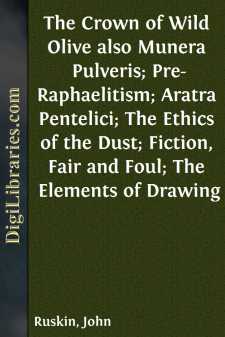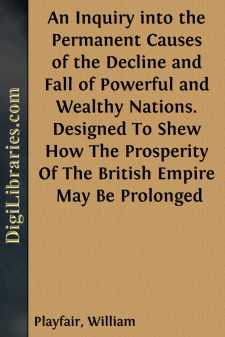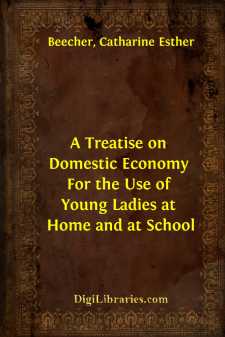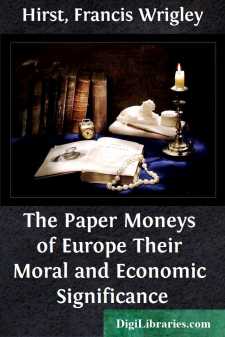Business & Economics
Business & Economics Books
Sort by:
by:
John Ruskin
PREFACE. Twenty years ago, there was no lovelier piece of lowland scenery in South England, nor any more pathetic in the world, by its expression of sweet human character and life, than that immediately bordering on the sources of the Wandle, and including the lower moors of Addington, and the villages of Beddington and Carshalton, with all their pools and streams. No clearer or diviner waters ever...
more...
The authors of this volume, while they sympathize with every honest effort to relieve the disabilities and sufferings of their sex, are confident that the chief cause of these evils is the fact that the honor and duties of the family state are not duly appreciated, that women are not trained for these duties as men are trained for their trades and professions, and that, as the consequence, family labor...
more...
MARGARET'S CHRISTMAS TREE About Christmas time Margaret was accustomed to see things tucked out of sight whenever she came around, and her feelings were never hurt when her Pretty Aunt, or her Other Aunt, or her mother, or her grandmother said: "Don't you want to run down-stairs a little while, dear!" or, "Margaret, would you mind staying out of the sitting-room all this...
more...
by:
William Playfair
P R E F A C E. ---o0o--- IF it is of importance to study by what means a nation may acquire wealth and power, it is not less so to discover by what means wealth and power, when once acquired, may be preserved. The latter inquiry is, perhaps, the more important of the two; for many nations have remained, during a long period,...
more...
There are some reasons, why American women should feel an interest in the support of the democratic institutions of their Country, which it is important that they should consider. The great maxim, which is the basis of all our civil and political institutions, is, that "all men are created equal," and that they are equally entitled to "life, liberty, and the pursuit of happiness." But...
more...
CHAPTER I CHOOSING A PLACE TO LIVE Blessed indeed are they who are free to choose where and how they shall live. Still more blessed are they who give abundant thought to their choice, for they may not wear the sackcloth of discomfort nor scatter the ashes of burned money. Most of us have a theory of what the home should be, but it is stowed away with the wedding gifts of fine linen that are cherished...
more...
by:
Herbert Feis
CHAPTER I—INTRODUCTORY Section 1. In any attempt to formulate principles for use in the settlement of wage disputes, past experience furnishes much guidance. What this experience consists of.—Section 2. Such principles as have been used in the settlement of wage disputes have usually resulted from compromise; reason and economic analysis have usually been secondary factors. However, industrial...
more...
by:
Seymour Eaton
I. COMMERCIAL TERMS AND USAGES HERE is a distinction between the usage of the names commerce and business. The interchange of products and manufactured articles between countries, or even between different sections of the same country, is usually referred to as commerce. The term business refers more particularly to our dealings at home—that is, in our own town or city. Sometimes this name is used in...
more...
THEIR MORAL AND ECONOMIC SIGNIFICANCE No more severe reflection could be passed upon the moral and political capacity of the human species than this: Five thousand years after the invention of writing, three thousand after the invention of money, and (nearly) five hundred since the invention of printing, governments all over the world are employing the third invention for the purpose of debasing the...
more...
INTRODUCTION We are told every day that great social problems stand before us and demand a solution, and we are assailed by oracles, threats, and warnings in reference to those problems. There is a school of writers who are playing quite a rôle as the heralds of the coming duty and the coming woe. They assume to speak for a large, but vague and undefined, constituency, who set the task, exact a...
more...











